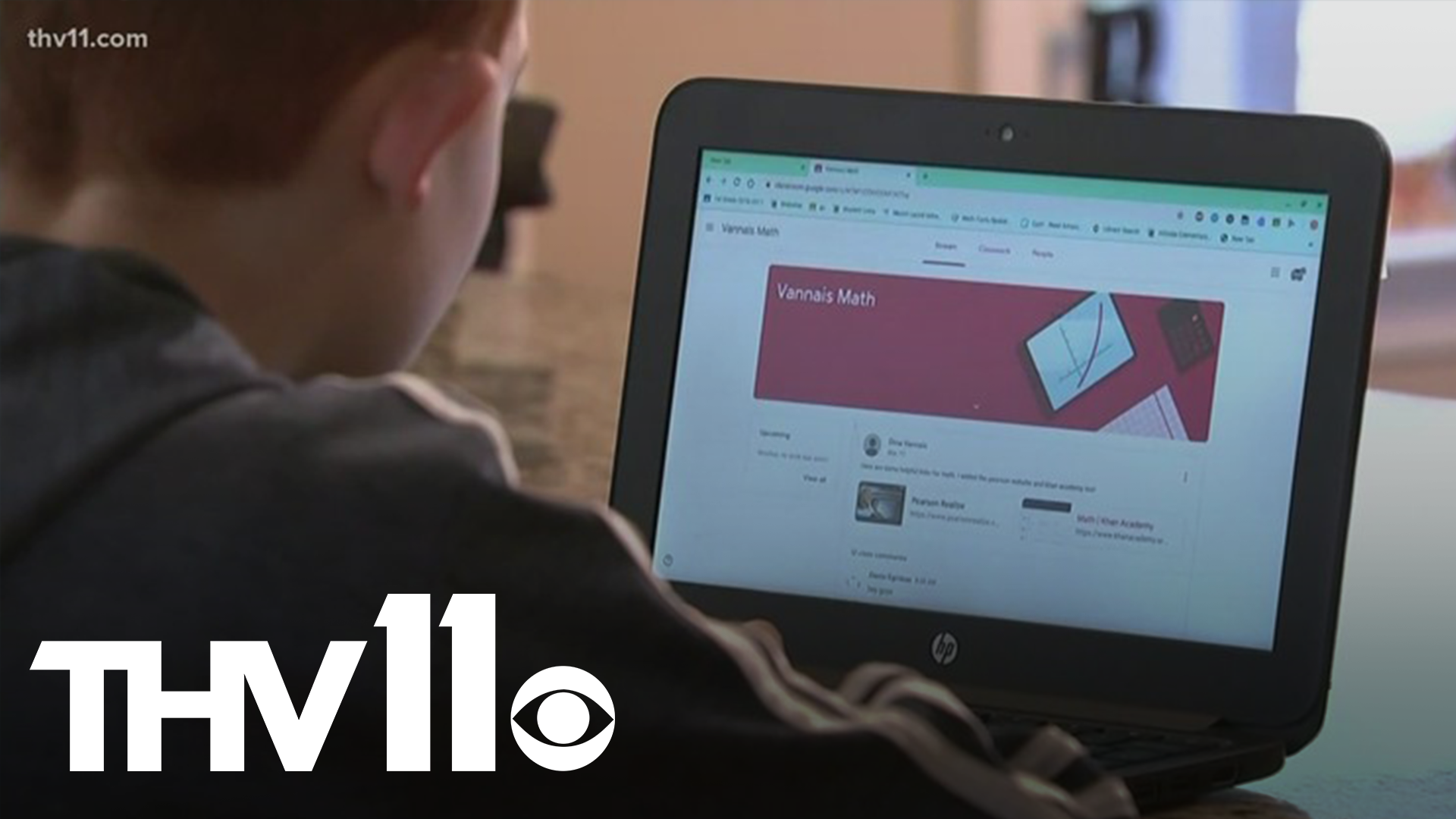LITTLE ROCK, Ark — Remote learning was new to many parents and educators during the 2020-2021 school year, as schools adjusted to holding classes in the midst of a pandemic.
It wasn't going to come without trial-and-error. Research that followed the effectiveness of virtual learning for K-12 schools was released.
The Wall Street Journal said it didn't work.
Last year, USA Today said students were falling behind which should be a major concern for both the heads of education and parents alike.
Here in Arkansas, parents are sharing their concerns online. Sonia Spinks is a Bentonville mother to 3 kids in who are in sixth, fourth, and first grade.
She and her husband were working from home alongside their kids when the entire state went into lockdown in March of 2020.
"I personally felt like I wasn't succeeding at anything, trying to take care of everyone. I constantly felt like a failure," Spink said. "I have an entirely newfound respect and gratitude for teachers and administrators after our experience and attempting to duplicate them."
She created a "Spinks working from home schedule" that included exercise, academic work, time for arts and crafts, lunch, chores, quiet time, outside time, and family time.
Even with the effort to try and duplicate an academic environment at home, Spinks said it was hard for her and her husband because they also had to work from home.
"We recognized that it's not our natural strengths and gifts to help our children learn what people who went to school and are professionally educated and skilled and trained to do that work," Spink said.
Academically during virtual learning their grades lowered. It was only when school came back in-person that she saw their grades improve.
Saint Mary's Regional Health System in Russellville posted on Facebook about the upcoming school year:
We would like to express our support for in class learning for all students. We all know that attendance in the classroom is important for academics, psychological health, and social development.
During the pandemic and with increased utilization of virtual instruction, we have seen a significant increase in visits for anxiety, depression, and other mental health concerns across all age groups.
Sharonda Lipscomb is the instructional design and quality assurance coordinator for E-learning with UA Little Rock.
She said for the most part virtual learning can be successful with proper preparation, but the first attempt at virtual classes didn't come without its challenges.
"Negative effects can be for K-12 mainly that social interaction. Students are very engaged in the face and face environment but online can be a challenge for them and that can impact the students emotional health and wellbeing," Lipscomb said.
She said there's both positive and negative aspects to virtual learning and every household and circumstance is different.
"For younger students there's more support and supervision required so that impacts the parent. They need to be there to help supervise and monitor those students so that they're doing what they need to do," Lipscomb said.

